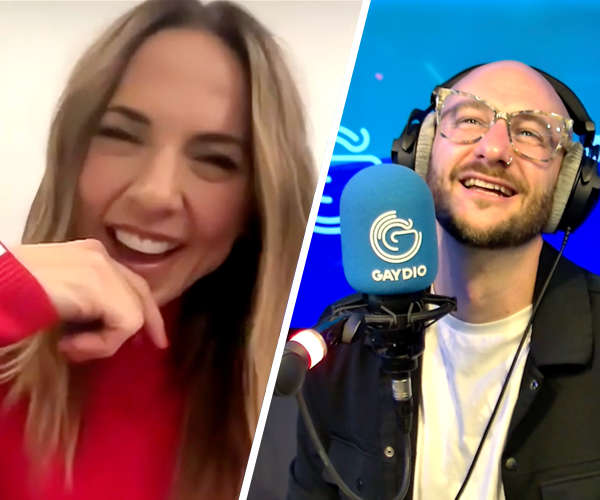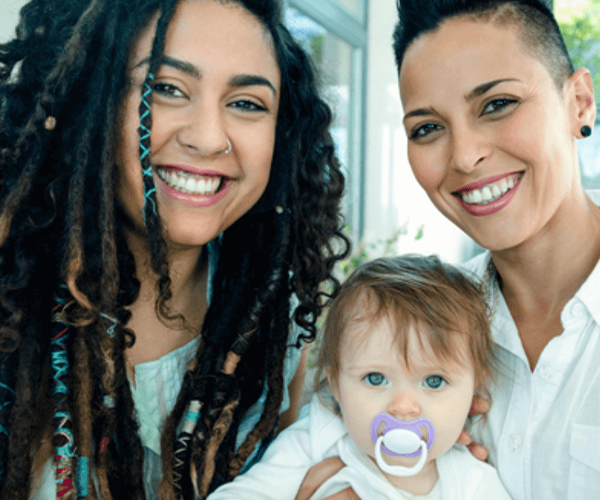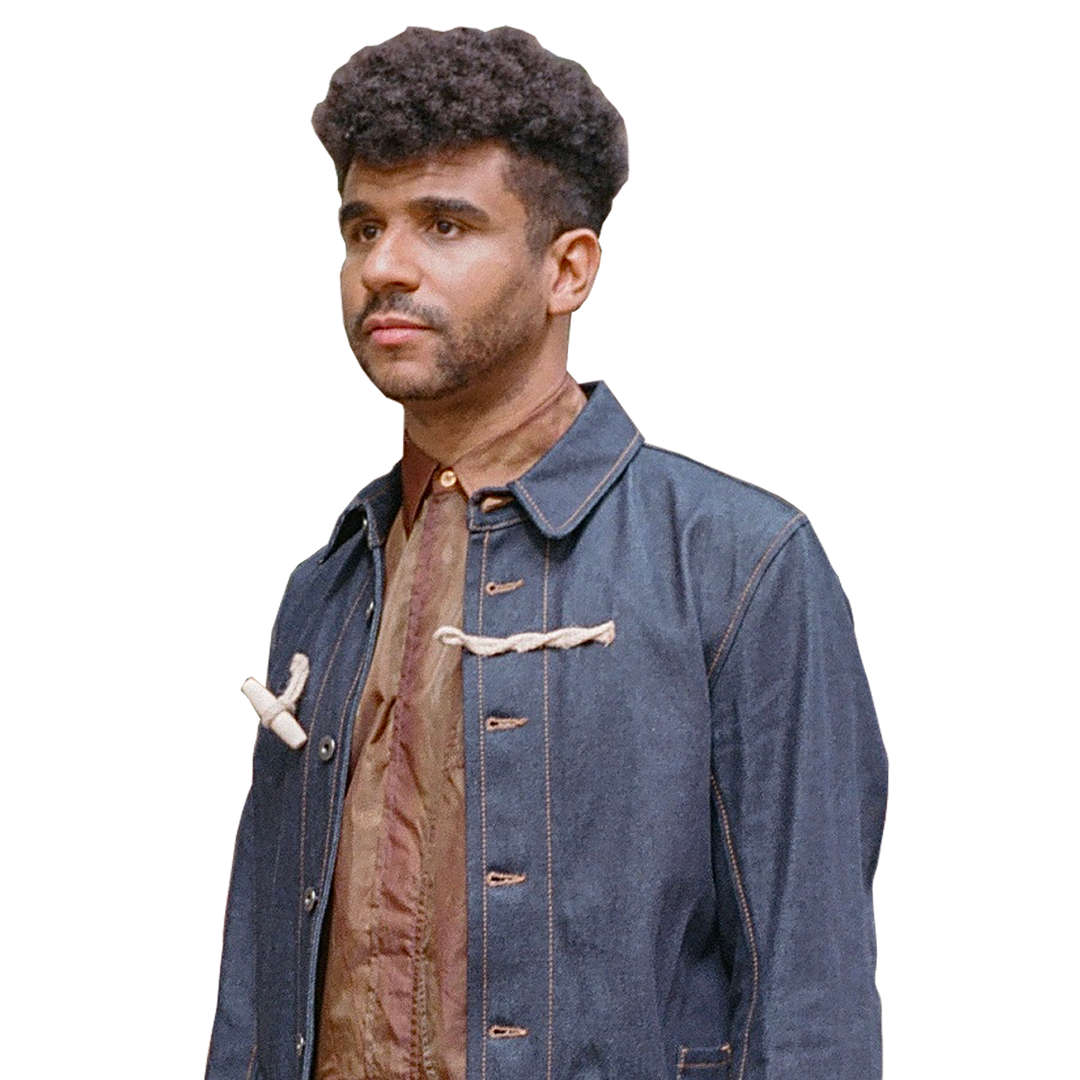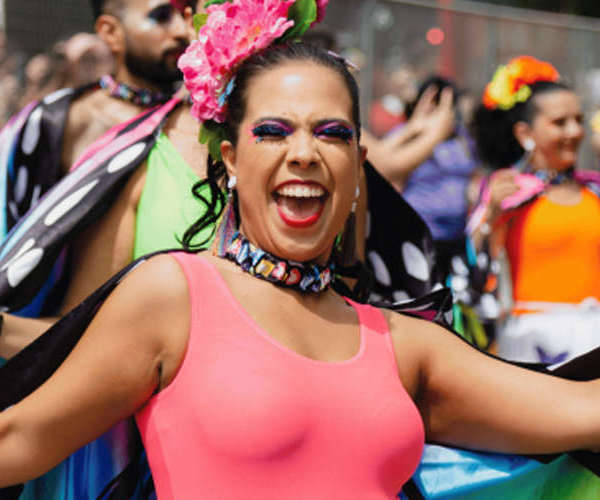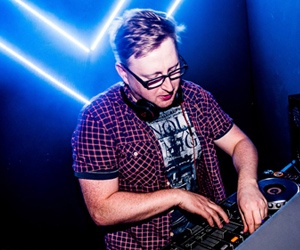In a small town in Suffolk, a team of police officers walk into a Turkish barbershop.
It's clean and brightly painted, the local football team's shirt displayed on one wall. Two young men, awaiting customers, hair and beards immaculate, tell officers they commute to work here from London.
Step through the door at the back of the shop and things look very different.
In a dingy stairwell, a bed has been crammed on to a landing, and a sofa just big enough to sleep on is squeezed under the stairs. The floor and steps are covered with empty pizza boxes, food containers and drink bottles. There's a pair of socks on the floor and a T-shirt on the bed. An unopened prescription sits on a table.
At least one person is clearly living here, but possibly not by choice.
"This could be linked to exploitation, this could be linked to some forms of modern slavery," says John French, the modern slavery vulnerability advisor for Suffolk Constabulary.
"You have to ask yourself when you come across this sort of situation, why would someone want to live in these sorts of conditions?"
Behind a second door, this one padlocked, is a second room. This one cleaner, but clearly not safe.
Phrases in Turkish and English have been scribbled on post-it notes stuck to the wall and officers find a driving licence with a local address.
"Judging by the state of the room, this could be an 'Alpha' living in here," says Mr French.
"An 'Alpha' is someone who's previously been exploited," he explains. "They have been given a little bit of trust and act like a kind of supervisor. They are very important to us, because we want to get them away from others before they can influence them."
A brand-new Audi SUV is parked at the back.
What's going on here?
We are in Haverhill, a small town in Suffolk bypassed by the rail network and the prosperity enjoyed elsewhere in the county, its central street bearing the familiar markers of town-centre decline.
There's a Costa, a Boots, a branch of Peacocks, and several pubs and cafes, but they're punctuated by "cash intensive" businesses including barbers, vape stores and takeaways, and several vacant premises that stand out like missing teeth.
It's the cash intensive businesses that have brought the attention of police, these local raids part of the National Crime Agency's (NCA's) Operation Machinize, targeting money laundering, criminality and immigration offences hidden in plain sight on high streets across England.
There are 17 premises of interest in Haverhill alone, among more than 2,500 sites visited since the start of October, resulting in 924 arrests and more than £2.7m of contraband seized.
In a single block of five shops on the High Street, four are raided. A sweet shop yields a haul of smuggled cigarettes stashed in food delivery boxes.
In the Indian restaurant three doors down a young Asian man is interviewed via an interpreter dialling in on an officer's phone. They establish his student visa has been revoked, and he has had a claim for asylum rejected.
The aim is to disrupt criminality using any means possible, be they criminal or civil. Criminal or not, the living conditions at the barbers are likely to fall foul of planning and building regulations enforceable with penalties including fines and closure, so officials from the council and fire safety are on hand.
Trading Standards are here to handle counterfeit goods seizures, and immigration officers are on hand to check the status of those questioned, pursuing anyone without permission to be in the UK.
'A full spectrum of criminality'
Sal Melki, the NCA's deputy director of financial crime, explains why the agency is targeting apparently small operations.
"We're finding everything from the laundering of millions of pounds into high value goods like really expensive watches, through to the illicit trade of tobacco and vapes, and people that have been trafficked into the country working in modern slavery conditions. We're seeing a full spectrum of criminality.
"We want to disrupt them with seizures, arrests, and prosecutions and make sure bad businesses are replaced with successful, thriving businesses that make us all feel safer and more prosperous."
Read more from Sky News:
British journalist held in US to be freed
Reeves all but admits tax rises to come
The last visit is to a small supermarket. Through the back door is another hidden bedroom, this one not much larger than a broom cupboard, with a makeshift bed made from a sheet of plywood and a duvet.
The man behind the counter, who says he's from Brazil via Pakistan, claims not to live in the shop, but his luggage is in a storeroom. He's handcuffed and questioned by immigration officers, and admits working illegally on a visitor visa.
"If he is proven to be working illegally he'll be taken to a detention centre and administratively removed," an immigration officer tells me. "That's not the same as deportation, the media always gets that wrong. He'll be given the chance to book his own ticket, and if not, he'll be removed."
Shortly afterwards he's put in a police car, his large red suitcase squeezed onto the front seat, and driven away.

(c) Sky News 2025: Sky News joins police raid on Turkish barbershop - and all is not as it appeared
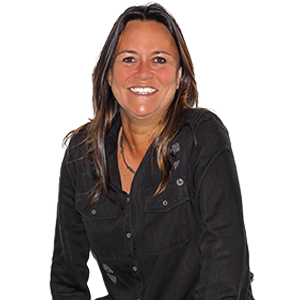
 Trump threatens to sue BBC for $1bn over speech edit
Trump threatens to sue BBC for $1bn over speech edit
 Rachel Reeves signals she will break tax pledges - and gives strongest indication she will lift two-child cap
Rachel Reeves signals she will break tax pledges - and gives strongest indication she will lift two-child cap
 Driven learner has failed their theory test 128 times - racking up a £2,944 bill
Driven learner has failed their theory test 128 times - racking up a £2,944 bill
 UK's Prevent counter-terrorism strategy 'is no longer keeping the country safe', commission warns
UK's Prevent counter-terrorism strategy 'is no longer keeping the country safe', commission warns
 Eight people who could replace Tim Davie as BBC director-general
Eight people who could replace Tim Davie as BBC director-general
 Drug breakthrough could substantially slow progression of motor neurone disease, say scientists
Drug breakthrough could substantially slow progression of motor neurone disease, say scientists
